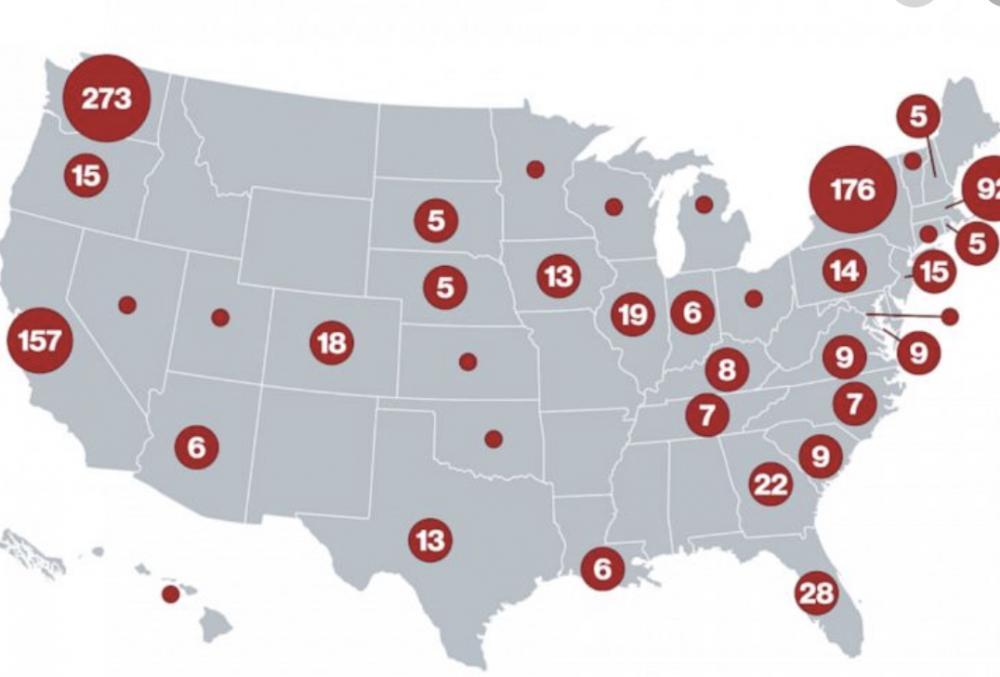In the wink of an eye, the prospect of an international pandemic and world recession is before us. Millions could die, both directly and indirectly from the coronavirus, and millions more could face severe economic deprivation of a type not seen in most of our lifetimes. How likely is this crisis? It’s not looking good. It looks as though it’s time to start worrying big-time, to sober up and realize that the rest of 2020 and, perhaps into 2021, will be no picnic.
Doomsaying is not a popular profession. I admit to amazement when, just a week or so ago, Elizabeth Warren suggested a “plan” for an $800 billion stimulus package to respond to the crisis. My first thought was, “There she goes again.” Now that proposal is looking more rational every day. And another few weeks like the last two may make it look modest.
Despite ample evidence, many of us have not yet acknowledged we are in a true crisis. As this was written, more than 800 Americans had already been diagnosed with the virus, airlines had cancelled thousands of flights, Italy had adopted a country-wide lock-down, dozens of universities had cancelled in-person classes in favor of online, and the stock market had crashed. The missing elements, presumably evidence that is needed to convince the rest of us, includes the President taking the crisis seriously, many more deaths, a better understanding of how deadly the virus may become, and more direct evidence that the economic damage to the economy will be long-lasting.
Is it rational to believe that once warm weather arrives the virus will end or decline into being more of nuisance than a deadly threat? Don’t we need something more? A vaccine? And how about the economic damage? Projecting forward to where things may be in a month—with a probability of more than 50 percent—dramatic increases in unemployment will occur, many businesses will face severe economic crises (think about restaurants with no customers as just one example). Once these jobs and businesses are gone, it will be years before pre-crisis numbers are recovered.
So, what to do? Here are a handful of thoughts:
First, either the Trump administration should start showing leadership in words, actions, and personal examples, or we, the public, need to tune them out and look elsewhere for information and a solution. To date, the administration’s record is frightening. One idea, put forward this week by radio personality Howard Stern, is for one or more of the major Democratic presidential candidates to assemble a group of experts in the medical, crisis management, and other relevant fields to offer detailed recommended actions. An interesting idea, especially if it prompted more serious action by the current administration.
Second, as is already in evidence throughout the country, state, local and private entities need to act immediately to respond to the threat. This includes greatly enhanced efforts to contain the virus and mitigate its impact. It includes short and longer-term workarounds, such as schools going online, cancelling or postponing public events, and businesses finding new ways to get needed goods to consumers.
Third, a Manhattan Project-sized effort to find a medical solution to the virus is needed. This should be an international effort but, to avoid unnecessary delays while coordination is put in place, the US, both government and private entities, need to get to work. Efforts are already underway, but, more can and should be done.
Fourth, international cooperation needs to reach new levels. If its true that the economic side of the crisis was exacerbated by a Russia-Saudi oil war, international pressure on both countries is needed. More importantly, data on the virus and on containment/mitigation best practices need to be shared. The UN or another, faster-acting forum, should seek to adopt international “rules” and actions that might slow or address the crisis.
Many reading this piece will find these four proposals inadequate, ineffective, or worse. Such a reaction is not only acceptable, but, perhaps logical, given where we are now. We are early in this crisis. We don’t know what we don’t know. It will get worse and, as it does, different approaches, different solutions, and different perspectives will emerge. The coronavirus and its impact on the world remain a fast-moving target.
To be as ready as we can, we should get, or stay, sober. This means not overreacting, but, more importantly, not underreacting. We need to learn everything we can and take personal action now, regardless of whether we perceive an immediate threat. Wash your hands, don’t touch your face, and stay home if you evidence any of the symptoms. Visit www.cdc.gov.
We need to get ready to fight what might prove to be an unprecedented world crisis.
J.E. Dean of Oxford is a retired attorney and public affairs consultant. He is a former counsel to the House Committee on Education and Labor. For more than 30 years, he advised clients on federal education and social service policy.



Willard Engelskirchen says
The governor of the State of Illinois said it clearly when he said that it was time for the president to “get his shit together.” So much for political correctness. This is after travelers at O’Hare were forced to wait in long lines for hours to get thru Customs and Immigration. Long hours when they might infect others of be infected by others. Pritzker is blunt and honest. Time for more of that.
IMHO Howard Stern has a great idea. You will never get a science based response out of Trump or Pence. Pence does not believe in evolution for God’s sake.